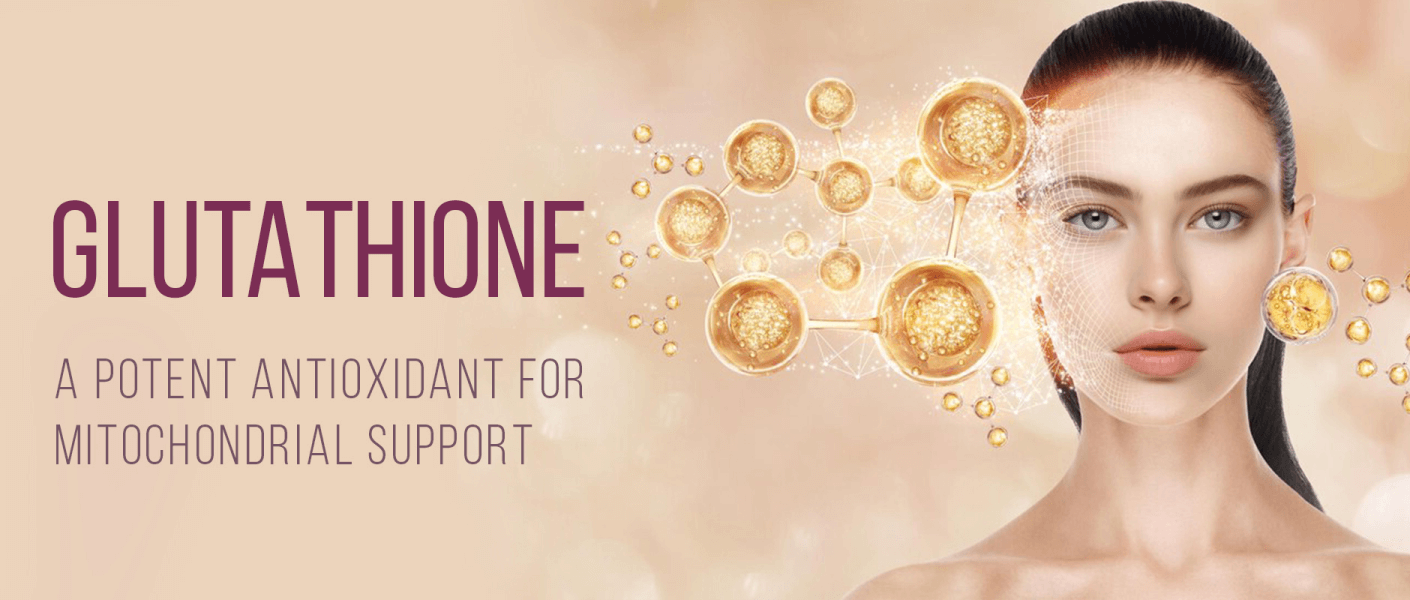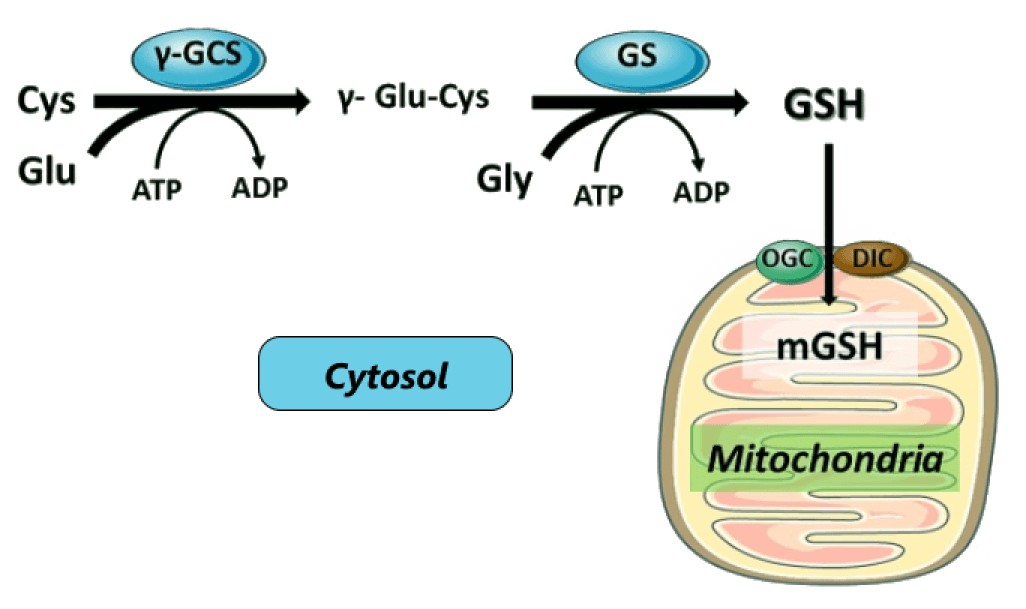
Glutathione (GHS) is a potent super-antioxidant found in every cell of your body. Well-known for its immune-boosting power to help fight disease, GHS also has potent anti-aging properties that protect your skin and support mitochondrial function in systems throughout your body. Your body makes its own glutathione from amino acids in your diet, but you can become depleted if you don’t eat enough of the right foods.
When delivered as a supplement via IV infusion, glutathione goes straight to work to protect against free radicals that cause damage to your cells. Learn about glutathione’s role in health and longevity, and how you can boost your GHS levels to push back against aging.
Glutathione and Mitochondrial Health
Glutathione is a tri-peptide made up of the three amino acids, L-cysteine, L-glutamic acid, and glycine. Its antioxidant properties protect your cells from oxidative stress and free radicals that can cause cell disintegration, leading to infections and cancers. Glutathione also helps protect your liver from becoming overloaded with toxins, ensuring that it can continue to do its vital job of detoxification.
When it comes to aging, the size, number and health of mitochondria determine the rate at which cells age. Mitochondria are tiny organelles found within cells that are responsible for energy metabolism – a process called oxidative phosphorylation. They break down oxygen, fats and carbohydrates and convert them to make ATP, the energy molecule.
Mitochondria constantly undergo fusion (joining) and fission (splitting) to adapt to changing energy demands. ATP is produced by the mitochondria via aerobic metabolism, meaning oxygen must be present. Regular physical activities that require a steady supply of ATP, such as walking, running, swimming and other steady-state aerobic activities, stimulate mitochondrial growth in both size and number.

In addition to energy production, mitochondria perform other cellular functions:
- Transport and storage of calcium ions used for cellular processes like muscle contraction and signal transduction
- Release of certain proteins to initiate programmed cell death
- Regulation of cell differentiation and growth
- Synthesis of heme, a molecule needed for hemoglobin production – hemoglobin carries the oxygen transported by red blood cells

Glutathione supports mitochondrial health by neutralizing harmful reactive oxygen species (ROS) that are byproducts of energy metabolism. Preventing oxidative damage is crucial for optimal cellular function. GHS helps to regulate the biosynthesis of iron-sulfur clusters needed for many mitochondrial enzymes, and it has a unique transport system to help it move from the cytoplasm into the mitochondria.
Glutathione deficiency can cause the mitochondria to become depleted, reducing mitochondrial respiration and limiting ATP production. Mitochondrial glutathione depletion can lead to premature cell death and accelerate the aging process.
Preventing Glutathione Depletion
Even though your body produces its own glutathione, many factors can deplete your available stores, leaving your cells vulnerable to damage from oxidative stress, free radicals, and cancers.
Factors that cause glutathione depletion and accelerate aging include:
- Nutrient-deficient diet
- Pollutants in the air and water
- Environmental toxins in food and personal care products
- Prescription medications and recreational drugs
- Chronic stress
- Trauma
- Infections
- Exposure to radiation
Minimizing your exposure to harmful elements and optimizing healthy lifestyle behaviors can help prevent glutathione depletion. Nutrition is especially important, since your cells are literally made from the foods you eat.
Foods that support glutathione production in the body include:
- Cruciferous vegetables like cabbage, broccoli and brussels sprouts
- Turmeric and curcumin, used to season many ethnic foods
- Avocados
- Spinach
- Walnuts
- Citrus fruits
- Green tea
- Watermelon
- Garlic
Supplementing with glutathione can help to make up for dietary deficiencies. When delivered via IV infusion, glutathione is quickly transported to cells throughout your body, ready to ward off oxidative stress. Pairing your glutathione infusion with NAD+ adds an extra layer of mitochondrial support, repairing DNA and promoting longevity.
Glutathione IV Therapy for Mitochondrial Support in NYC
Robust mitochondria are essential to graceful aging and lifelong health, and nutrition plays a key role. But modern diets are often nutrient-deficient, and fast-paced lifestyles accelerate the aging process. Invita Wellness offers a growing menu of natural solutions geared to promoting health, beauty and longevity.
Glutathione, NAD and other key nutrients can help slow the aging process while optimizing cellular health. Contact Invita Wellness today, and give your mitochondria a boost with a glutathione IV cocktail.
give your mitochondria a boost with a
glutathione IV cocktail
contact InVita Wellness today
Book Now
456 Broadway 2 Floor, New York, NY 10013, USA
Resources
Iskusnykh, Igor Y., Anastasia A. Zakharova, and Dhruba Pathak. “Glutathione in brain disorders and aging.” Molecules 27.1 (2022): 324.
Glutathione in brain disorders and aging
Marí, Montserrat, et al. “Mitochondrial glutathione: recent insights and role in disease.” Antioxidants 9.10 (2020): 909.
Mitochondrial glutathione: recent insights and role in disease
Ribas, Vicent, Carmen García-Ruiz, and José C. Fernández-Checa. “Glutathione and mitochondria.” Frontiers in pharmacology 5 (2014): 151.
https://pmc.ncbi.nlm.nih.gov/articles/PMC4079069/Glutathione